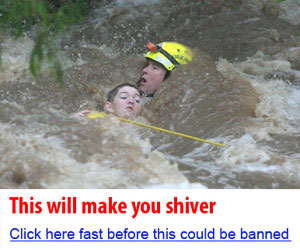What is it really like living and surviving in a war-ravaged country?
Living in a war-torn country — well, it’s not something that fits neatly into a sentence. It’s not like in the movies, not even close. There’s no soundtrack swelling in the background. It’s quiet, but not the peaceful kind — more like the kind of quiet that suffocates, that hisses in your ears right before a distant mortar cracks open the sky like a rotten egg.
Sometimes, days start with dust. Not sunrise. Just dust — floating, sticking to your skin, getting in your mouth, gritty between your teeth like sandpaper. And then, maybe a scream. Or not. Some mornings, it’s eerily calm, too calm, like everything’s holding its breath. That’s when people get nervous. Because peace doesn’t feel real anymore. It feels like bait.
Time doesn’t just pass — it crawls, then leaps.
You think it’s Tuesday. It’s Saturday. Or next month. Calendars become more like decorations, reminders of a world that once ran on appointments and birthdays. You stop planning. Honestly, you forget how. I mean—what’s the point of making tea when there might be a drone overhead by noon?
I remember once… there was this boy, Samir, maybe 9? He asked me if summer still existed in other countries. Not weather-wise — emotionally. That floored me. What kind of child equates “summer” with a feeling? But he wasn’t wrong. Seasons don’t feel like seasons anymore. Just more time, more heat or cold, more waiting for the next disaster.
Food isn’t food. It’s currency. It’s hope. It’s leverage.
And forget cravings — you eat what you can find. A tin of beans feels like a feast. There was a week when a neighbor traded half a bottle of aspirin for two potatoes. That’s how you measure value now — not dollars, but desperation.
And water? God. Clean water is like a rumor — you hear someone found it, but you’re not sure it’s true. You drink what’s there. You pretend not to taste the metal. Or the dirt. You stop asking questions. You just hope your kids don’t throw up after.
The soundscape is… surreal.
Not loud, not exactly. More like unpredictable. You hear laughter and you flinch. A door slams, and your body — without asking your permission — dives for cover. One minute there’s music playing from a broken phone, next minute the walls shake, and your lungs tighten so hard it feels like your ribs are folding inward.
Sleep? You don’t sleep. You close your eyes and practice lying still. If you drift off, it’s for five minutes at a time, in strange places — behind refrigerators, under tables, on rooftops. Dreams, when they come, are almost worse than waking. Because sometimes, they show you peace. A lie.
Schools become shadows.
Some try to keep teaching, you know? Brave souls with books and chalk, holding class in abandoned garages or basements. But how do you teach multiplication when there’s sniper fire outside? Children learn how to identify artillery before they learn how to spell “apple.”
Jobs? Ha. That word feels ancient. Most people hustle. Trade, patch clothes, sell cigarettes, run messages — whatever. If you still have a job from before, you’re either lucky… or in danger.
And trust—God, trust is dead.
You look at your neighbor, and you wonder. Is he spying? Is she going to report you for that joke you made? Paranoia isn’t irrational anymore — it’s a survival mechanism. You don’t confide. You don’t vent. You bottle. It’s safer.
But that makes things heavier. Emotionally. Like your soul is carrying bricks. You want to scream sometimes, but who has the energy?
Grief is not a moment. It’s an atmosphere.
People vanish. Sometimes they come back, sometimes they don’t. You don’t get closure. You get rumors. Or worse, silence. I once found out my cousin died through a passing merchant. “Sorry about Kareem,” he said. Just that. And moved on. I nodded, as if I already knew.
Funerals are rushed. Sometimes they’re whispered affairs. No flowers. No prayers out loud. Just a hole and a shovel and someone crying quietly into their sleeve.
But weirdly, you do adjust. Humans are stubborn that way.
You normalize chaos. Kids play near rubble. Women plant tiny gardens in buckets — dry, cracked soil with stubborn little sprouts poking up. It’s like defiance. A middle finger to war.
And there’s kindness, too — small but powerful. A stranger gives you half their bread. Someone risks their life to help an injured man off the street. These things feel holy. Bigger than religion.
Faith… sometimes becomes everything. Other times, nothing.
People either cling harder or drift away. Some pray more. Others curse the sky. And some do both. In the same breath. Contradictions become habits. I’ve seen a woman light candles, then throw a stone at the church doors. Love and rage, faith and fury — they swirl together, impossible to separate.
Then… the war ends. Or pauses.
You think that’s the finish line? No. That’s when the ghosts start to speak. The rebuilding isn’t just bricks. It’s brains, hearts, memories. You have to remember how to live without flinching. Without checking the sky.
Kids don’t know what normal is. They draw tanks in crayon. They panic if they hear fireworks. PTSD isn’t a diagnosis — it’s a neighborhood. The whole block has it.
Living in war doesn’t make you strong. It makes you hollow first. Then — maybe — if you’re lucky, you rebuild. Brick by emotional brick. You carry on. Not because it’s noble. But because that’s what breathing people do.
Even when the air tastes like ash.



